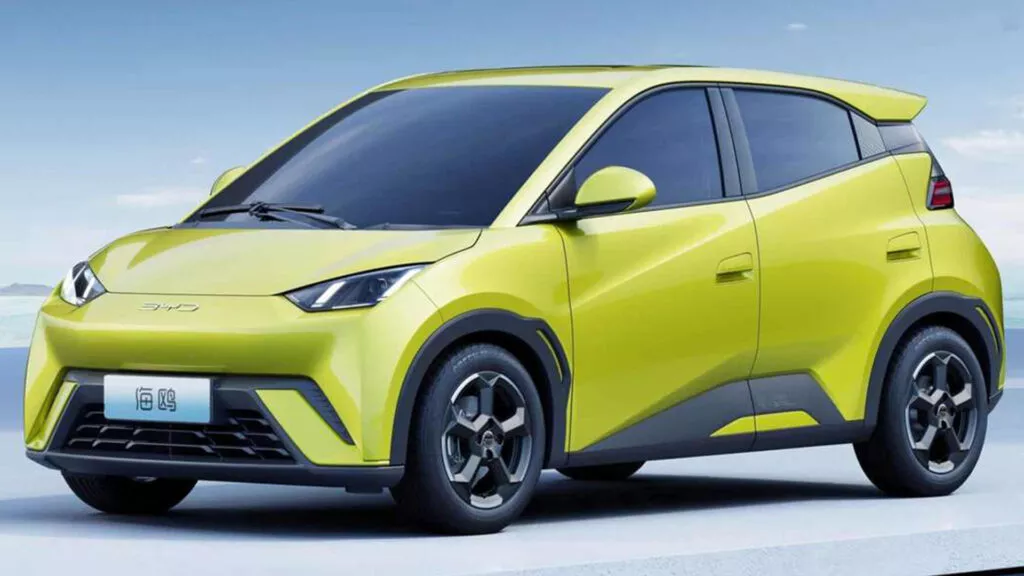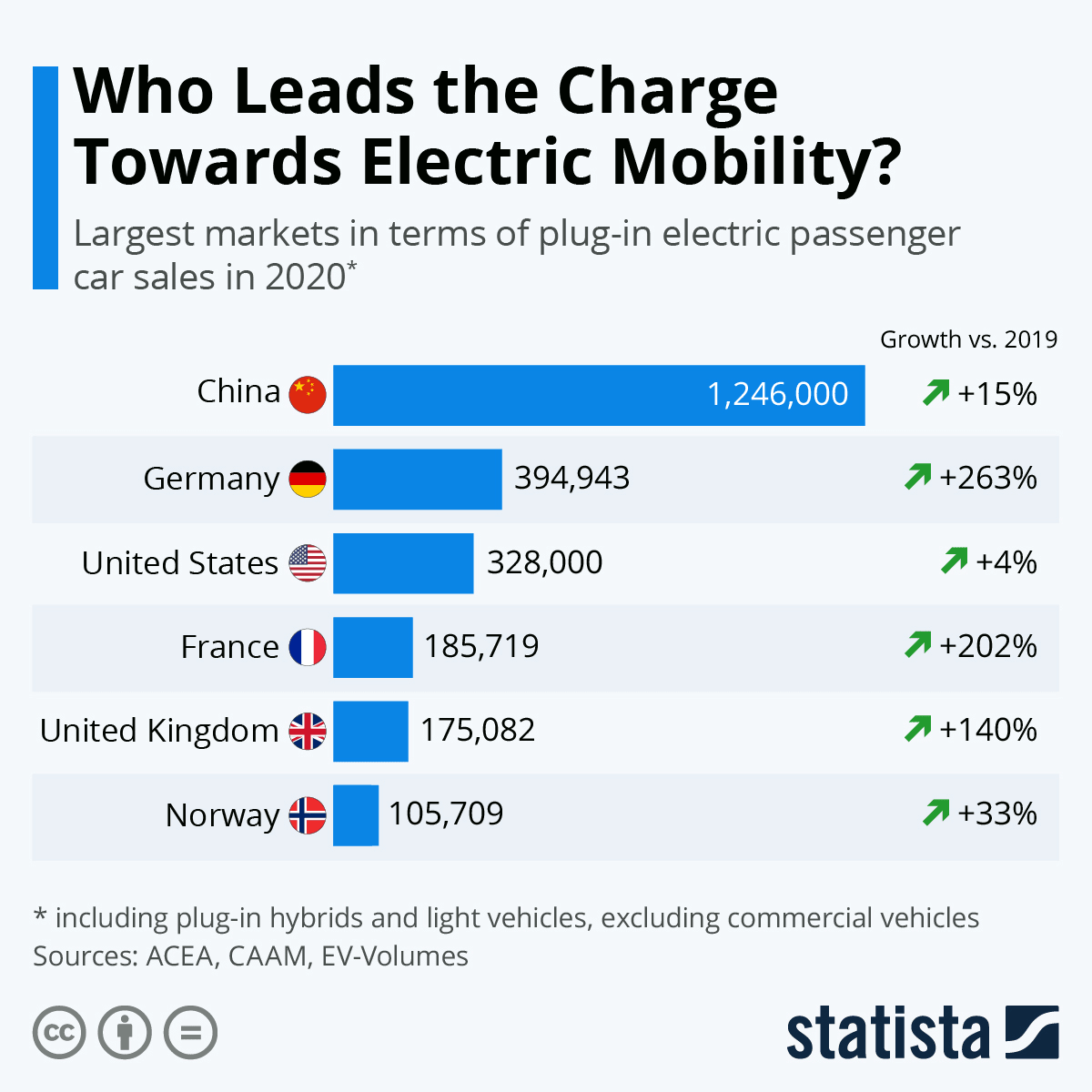Not precisely a surprise, or it shouldn’t be.
China, already the world’s biggest market for EV, is set to knock Japan from top spot for global car export volume this year after overtaking Germany in 2022
Price on the low end is pretty good, too, though it may only be available in China:
This is the new BYD Seagull and with a price tag starting at just 78,000 yuan ($11,300), it is one of the most compelling new electric vehicles from China launched in quite some time.

Of course, it helps that China is the largest market, though some European countries are hard-charging in terms of buying electric vehicles.

For a long time the US had a huge advantage: it had the consumers. It was rich, it was high population, there were no high population countries with larger markets than the USA. Now China is only a middle income country, but it is a 1.4 billion population middle income country.
Further, China uses industrial policy. It does not have a floating currency, but one that it manages. It provides huge subsidies to important industrial markets and it supplies a domestic market which is huge.
It should be understood, clearly, that with almost no exceptions, every country industrialized under protectionist policies. The only exceptions I am aware of are city states, Finland, and the USSR. Every country which moved to laissez-faire policies then saw a decline in their industrial power. In almost all cases they also had a sponsor: for Japan and the US, for example, the initial sponsor was Britain. That sponsor helped them with the initial technology transfer and provided an external market.
The country which did that for China was the United States.
However, as was the case with Britain aiding the US, this was a clear geopolitical mistake (though in the Chinese case a humanitarian plus). China’s population size and geographical extent meant that they eventually created a large internal market capable of providing a substantial market and, since they were and are the lower cost producer (a large part of why America moved production there in the first place), they have been able to easily take over export markets from the US and its allies: their products are about as good, or good enough, and a lot cheaper. So the West went from being the primary exporter of goods to South America, Africa and most of the rest of Asia to second place.
At this point China has a large internal market and more of the world market than the US does.
This is not to say that the American and European markets aren’t important, they are. But they are no longer determinative: they are no longer the only game in town.
Add to this that China is surging technologically, and the Western lead is evaporating. The speed of that evaporation is accelerating. China now has a domestic passenger jet industry, for example. The jets aren’t as good as Airbus or older Boeing planes (Boeing appears unable to make good new planes) but it’s good enough, and the next generation will be better. Chip manufacturing and design continues to improve and all the serious technological bottlenecks will be broken, I’d guess in ten to fifteen years. Most solar panels are made in China and it is also the world’s largest market for solar.
As I have pointed out before, the tech lead moves to where the manufacturing floor is. There is lag time, in the case of Britain and the US it was about 20 years, but it happens.
There are jokers in the pack, of course: climate change, demographic issues, ecological collapse, the possibility of war and blockade and so on, but the smart money is on China.
China was the world’s largest and most important economy for most of the last 2,000 years and the most technologically advanced (before that it was India.) It will return to that position if climate change or war does not stop it.
All absolute advantages are time-bounded. You can extend them with careful policy, but at some point other people learn how to do what you can do. If a smaller nation wants to dominate it needs an absolute advantage in production or the military. Sometimes that is in production, sometimes it is cultural/technological (think the Mongols or the Macedonian Greeks).
The West’s time is done. This is going to be particularly hard on the Europeans if they keep bungling their decline (they should be disentangling from the US and forming a third pole). The US, if it does not disintegrate into civil war, faces an ugly period as well. The dollar hegemony is collapsing, to the extent that even the Financial Times is writing about it, their tech leads is disintegrating and they are set to be the leader of the lesser bloc in a cold war. That didn’t work out well for the USSR and it isn’t going to work out well for the US.
Now, everyone has problems and I wouldn’t be surprised if in 50 years China breaks up under the hammer blows of climate change and ecological collapse. But then, I wouldn’t be surprises if the US does. For now, the normal dynamics of historical change and the rise and fall of hegemonic powers are in play and the smart money is on China.